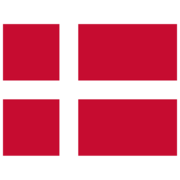Fiscal subject related
- You must display the total price of the product or service, including all taxes, fees, and charges. The price must be clear and visible to the customer, and it must not be hidden or obscured by other information.
- Ensure that the pricing for items sold by weight, volume, or length is presented in terms of the respective unit of measurement, such as kilograms, liters, or meters. This allows customers to compare the prices of different products or quantities.
- You must display the price in Danish kroner (DKK), which is the official currency of Denmark. You can also display the price in other currencies, such as euros or dollars, but only as additional information and not as the main price. You must also indicate the exchange rate and the date of conversion when displaying prices in other currencies.
- You must display the price in a way that does not mislead or confuse customers. For example, you must not use fonts, colors, symbols, or images that make the price appear lower or higher than it actually is. You must also not use terms or expressions that imply a discount or a bargain, such as "only," "now," or "save," unless you can prove that the price is lower than the normal or previous price.
- You must display the price in a way that does not violate fair commercial practices, which are the socially acceptable norms for marketing in Denmark. For example, you must not display prices that are offensive, unethical, or harmful to the environment or public health.
If you do not comply with the rules on price display, you may face sanctions from the Danish Consumer Ombudsman, which is responsible for enforcing the Marketing Practices Act. The sanctions may include fines, injunctions, or compensation claims. You may also lose customers' trust and loyalty and damage your reputation and brand image.
Other news from Denmark
Denmark’s Economic Council Rejects Lower VAT on Groceries
 Denmark
Author: Ivana Picajkić
Denmark
Author: Ivana Picajkić
Denmark’s Economic Council advises against lowering VAT on food, citing high costs, management difficulties, and minimal benefits for needy households. They recommend direct financial support for low-income families and subsidies for healthy food instead, emphasizing the simplicity of Denmark’s current single VAT rate of 25%. Denmark’s top economic advisers have warned against lowering VAT o... Read more



Denmark Introduced New Coins Featuring the Current Monarch
 Denmark
Author: Ivana Picajkić
Denmark
Author: Ivana Picajkić
Denmark introduced redesigned coins on December 2, 2025, featuring King Frederik X through updated portraits and monograms, along with a new symbol inspired by the octagonal layout of Amalienborg Palace Square. The new designs apply to the 20-, 10-, 5-, 2-, and 1-krone coins, while all existing coins remain legal tender and continue to circulate. Danmarks Nationalbank introduced new Danish coins i... Read more



What’s Changing in Denmark: New E-Invoicing, SAF-T 2.0, and ViDA Requirements
 Denmark
Author: Ivana Picajkić
Denmark
Author: Ivana Picajkić
Denmark, like many EU countries, is gearing up for major regulatory changes such as VAT in the Digital Age (ViDA). The country is moving toward a more automated digital economy by updating its e-invoicing standards, strengthening digital bookkeeping rules, and aligning national systems with future EU requirements . Modernising e-Invoicing standards Denmark is updating its national docume... Read more



Denmark Announces New Nemhandelsregister Update
 Denmark
Author: Ivana Picajkić
Denmark
Author: Ivana Picajkić
Denmark has announced a new Nemhandelsregister (NHR) update—covering NHR Core, API, SMP, and PoRS—bringing stability, security enhancements, and a key fix ensuring the validator now correctly handles overlapping profiles. The release, deployed to demo on 19 November and expected in production on 26 November 2025, may cause brief disruptions but requires no actions from market participants. The Dan... Read more



Denmark Releases Updated OIOUBL Schematron
 Denmark
Author: Ivana Picajkić
Denmark
Author: Ivana Picajkić
The Danish Business Authority released OIOUBL 2.1 schematron version 1.16.0, enhancing e-invoice data quality with CO2 data checks and stricter currency code controls. Implementation is required by November 27, 2025. The Danish Business Authority has released version 1.16.0 of the OIOUBL 2.1 schematron as a final version. The update is minor and focuses on improving data quality in e-invoices. Th... Read more



Denmark: Sale of Christmas Calendars is VAT Exempt
 Denmark
Author: Ivana Picajkić
Denmark
Author: Ivana Picajkić
The Danish Tax Council has classified Christmas calendars involving discounts and prize draws as a single, composite service exempt from VAT, treating them as lotteries. Read more
Subscribe to get access to the latest news, documents, webinars and educations.
Already subscriber? Login


Denmark Advances with E-Invoicing and Digital Bookkeeping Plans
 Denmark
Author: Ivana Picajkić
Denmark
Author: Ivana Picajkić
Denmark is advancing its digital transformation by updating e-invoicing standards and strengthening digital bookkeeping rules, including new versions of OIOUBL and SAF-T expected by the end of 2025. Looking ahead to EU ViDA requirements, the country plans higher e-invoice adoption and tighter system integration, positioning Denmark as a leader in automated business transactions Denmark is continui... Read more


